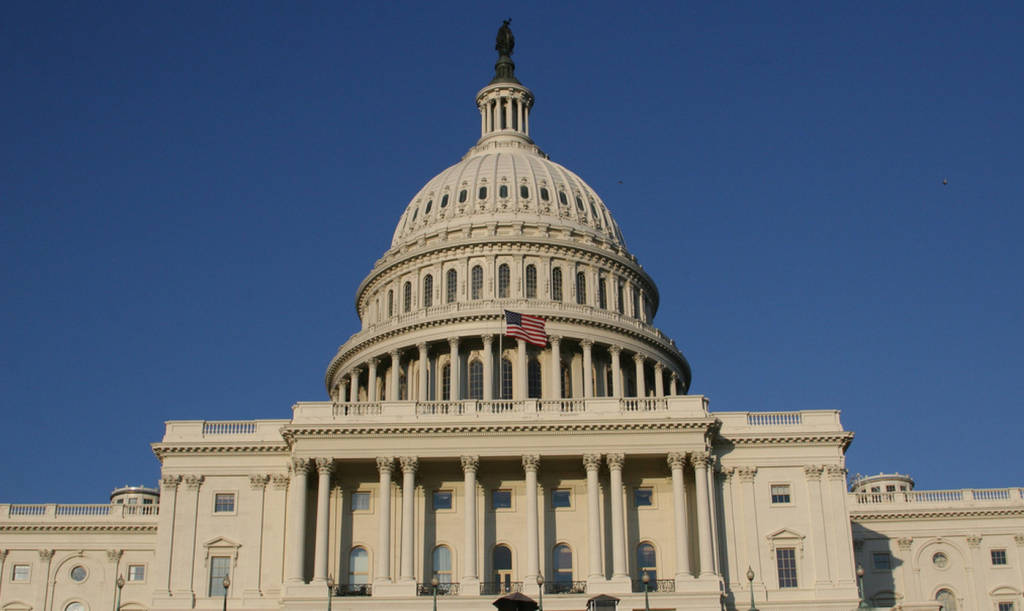Apple, FBI Testify About Encryption And Privacy In Congressional Hearing

(inajeep)
The angriest battle in tech right now is taking place between Apple and the FBI. Two weeks in to a very public fight, the argument is only heating up. Today, the debate went over to Capitol Hill.
The public phase of this argument began in mid-February, when Apple very publicly told the FBI where it could stick a specific request. That request was to basically create a new version of iOS, to be used on one phone formerly used by one of the San Bernardino shooters in 2015, to allow the feds to hack the phone without its data being destroyed.
In the weeks since, both Apple and the FBI have been vigorously defending their positions. In blog posts, FAQs, media interviews, e-mails, and reports to Congress, both entities have explained why their side is the one of nobility and truth, and the other side is the one that wants to ruin everything.
The Representatives who spoke before the witness testimony both praised the many benefits of encryption to consumers privacy and citizens’ safety alike — but there remained a “but,” and its name is national security.
James Comey, the director of the FBI, said in his written and oral testimony that he feels the tech sector and Washington are “talking past each other,” and that “American citizens care deeply about privacy, and rightly so.”
Technology, Comey said, is heading in the direction that all communication will be automatically encrypted and held as private sooner rather than later. But in that environment, the data law enforcement can get through actual search warrants and court orders is either unavailable or, thanks to encryption, “gobbledygook.”
“The more we as a society rely on electronic devices to communicate and store information,” Comey said in his written testimony, “the more likely it is that information that was once found in filing cabinets, letters, and photo albums will now be stored only in electronic form. We have seen case after case — from homicides and kidnappings, to drug trafficking, financial fraud, and child exploitation — where critical evidence came from smart phones, computers, and online communications.”
Being unable to access those, he explained, has a cost. “If there are warrant-proof spaces in American life,” Comey asked, “how do we think of that? What is the cost of that?”
The answers, he determined, can only be reached through “robust” debate and discussion at every level, which he encouraged. “There are no demons in this debate,” he concluded. “The companies are not evil, the government is not evil. The companies care about public safety, [and] the FBI cares about innovation and privacy.”
Despite appearances, Comey finished, “We care about the same things.”
Committee chairman Bob Goodlatte of Virginia then specifically challenged Comey on Apple’s objections. Namely: would this really be a single phone? After all, wouldn’t it set precedent?
Comey admitted, “Sure, potentially” this would set a precedent for other phones in the future. That said, “I happen to think there are technical limitations” that would prevent any development applied to one of the San Bernardino shooter’s phones being applied from new phones in the future because technology changes.
Goodlatte continued in the same vein: “How confident are you that what you are requesting, which is the creation effectively of a key, a code, how confident are you that will remain secure and allow all the other customers of Apple and other companies’ technology as well, that it will not fall into the wrong hands and make everyone’s communications less secure, not more secure?”
Comey, however, remained confident and said he doesn’t see this “as a back door,” even though that’s how Apple describes it.
It’s not a matter of putting in a door, he said. “We’re asking Apple to take the vicious guard dog away and let us pick the lock.”
Ranking member John Conyers of Michigan then took his question time to push farther on the issue of precedent, which Comey rebutted with appeals to the families of the victims in San Bernardino and families of crime victims elsewhere in the nation. And back and forth it went.
Apple’s general counsel, Bruce Sewell, in his testimony reiterated CEO Tim Cook’s words from the company’s open letter. “We have the utmost respect for law enforcement and share their goal of creating a safer world,” Sewell testified — but this request isn’t it.
Contrary to Comey’s description, Sewell again referred to the FBI’s request as “a backdoor into the iPhone — specifically to build a software tool that can break the encryption system which protects personal information on every iPhone.”
“Building [what the FBI wants] would not affect just one iPhone,” Sewell’s testimony repeated. “Hackers and cyber criminals could use this to wreak havoc on our privacy and personal safety. It would set a dangerous precedent for government intrusion on the privacy and safety of its citizens.”
Apple also said that Congress, rather than the FBI, is best-suited to make the decisions about privacy and encryption that will continue to have lingering effects on all of us into the future. “The decisions should be made by you [in the committee] and your colleagues as representatives of the people, Sewell’s testimony said, “rather than through a warrant request based on a 220-year-old statute.”
The hearing specifically relating to the court order pertaining to the San Bernardino phone won’t take place for a few more weeks, but a different court, facing a different but similar case, ruled yesterday that the rationale the FBI is using in both instances was insufficient, setting an interesting precedent for the upcoming California hearing.
All witnesses’ written testimony is available on the House Judiciary Committee website, and full archived video of the hearing can be viewed on C-SPAN.
Want more consumer news? Visit our parent organization, Consumer Reports, for the latest on scams, recalls, and other consumer issues.

